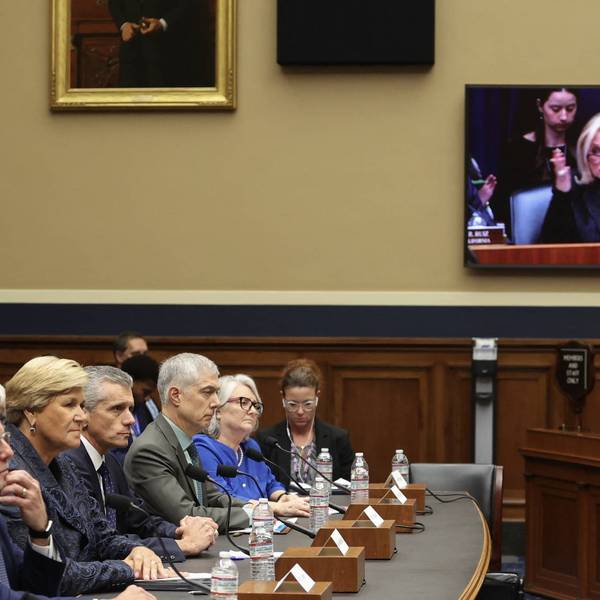One of the largest health insurance giants in the country, Anthem, on Saturday proposed a $47 billion merger with its competitor Cigna, part of an industry-wide merger bonanza that analysts warn could have a devastating impact on health care cost and access nationwide.
The public proposal comes as the top five U.S. insurance companies--UnitedHealth Group Inc., Anthem Inc., Aetna Inc., Cigna Corp. and Humana Inc.--race to consolidate in what Bloomberg recently called a "five-way dating drama" and the Wall Street Journal referred to as an "oligopoly wave."
In a letter to the Federal Trade Commission earlier this month, the American Association of Family Physicians expressed deep concerns "about the potential merger of any of the nation's largest health insurance companies and the impact such actions would have on access and affordability of health care for consumers across the nation."
"Bigger insurance companies mean increased leverage and unfair power over negotiating rates with hospitals and physicians," the organization continued. "More often than not, consolidation increases costs and reduces options for consumers and we believe this would hold true in the health insurance market."
Dave Jones, California's top insurance regulator, echoed these warnings in an interview this week with the L.A. Times: "Generally speaking, further consolidation in the health insurance industry is not a good thing for consumers, employers or medical providers. It means the potential for future price increases as a result of less competition."
A report (pdf) released last year by the Commonwealth Fund finds that the U.S. health care system is already the most expensive in the world yet delivers the worse care among 11 industrialized nations. Many are calling for a universal, publicly-funded health care system to replace the for-profit model behind this dismal performance.



